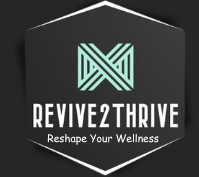Have you ever noticed how easily we can spot flaws in others while turning a blind eye to our own shortcomings? It’s a fascinating quirk of human behaviour, reflecting deeper questions about our moral compass and self-awareness. What drives this tendency to judge others more harshly than we judge ourselves? Exploring these dynamics offers a window into the complexities of human nature and the origins of our ethical beliefs. Let’s unravel this intriguing phenomenon together and ponder how it shapes our interactions and understanding of ourselves.
What Psychology says:
The reluctance to acknowledge our own faults often stems from a blend of psychological defences and social influences. Psychologically, admitting fault can threaten our self-image and ego(Identity). It requires confronting aspects of ourselves that may be uncomfortable or even painful to acknowledge. As a result, we may employ defence mechanisms such as denial or projection—attributing our own shortcomings onto others—to protect our fragile sense of self-worth.
How do we Protect of our ego’s
Failures are our own doing. Do we agree that it often come from not understanding our own strengths or the effort needed to reach our goals? It’s tough on our ego, isn’t it? Habitually its easier for us to blame things like bad luck, fate, or other people because that way we don’t have to deal with a bruised ego (Personal and social identities).
Blaming others might save your ego in the short term, but it can lead to more frequent failures, unnecessary anxiety and may put you into depression. That’s because we miss out on the chance to improve ourselves. Sure, working on ourselves doesn’t guarantee success every time, but it can definitely reduce the chances of failing.
The environment we grow up in plays a big role here. From a young age, we learn what’s acceptable and what’s not in our community. This often makes us more likely to shift the blame onto others instead of facing the consequences of our own actions.
On top of that, comparing ourselves to others complicates things. By focusing on others’ flaws, we might get a quick boost to our self-esteem, but this usually means we’re avoiding a genuine look at ourselves. Let’s be aware of these patterns and focus on taking responsibility for our own growth.
Spiritual Insight:
Because we’re so fixated on looking outward rather than inward, our minds find it easier to magnify the faults of others while remaining blind to our own. It’s like wearing glasses that only see imperfections in others, leaving our own flaws unnoticed in the blur. This brings to mind a famous quote by Sadhguru:
Your ability to see your own faults is very limited. Other people can see your faults much better. But their ability to see their faults is also very limited, so it evens out.
We need to change ourselves. We need to go from compulsive state to conscious state. We need to become introvert to know the self : Sadhguru : Founder of Isha Foundation
Where Does Our Conscience Come From?
Our conscience—the inner voice that guides our moral decisions and judgments—develops through a more nuanced interplay of factors:
- Developmental Stages: During our childhood and teenage years, we learn about morals from our parents, friends, and society. These early experiences build the foundation for our understanding of what is right and what is wrong.
- Cultural and Social Influences: Cultural values and societal norms play a significant role in shaping our sense of right and wrong. They define what behaviour are seen as good or bad in different societies. These influences differ greatly between cultures and affect how people view and deal with moral challenges
- Innate Moral Capacity: Some theorists argue for an innate moral sense—a foundational predisposition towards empathy, fairness, and altruism that underpins our conscience. This inherent capacity interacts with our experiences and upbringing to mold our ethical reasoning.
- Reflection and Experience: As we navigate life’s complexities, our conscience evolves through reflection on our actions and their consequences. This introspective process allows us to refine our moral judgment and develop a deeper understanding of our ethical responsibilities towards ourselves and others.
The Path to Personal Growth
Acknowledging our tendency to overlook faults in ourselves while scrutinizing others is the first step towards personal growth and ethical maturity. It demands cultivating self-awareness, humility, and a willingness to engage in honest self-reflection.
By understanding the origins of our conscience—rooted in both innate capacities and external influences—we gain insight into the complexities of moral decision-making. It underscores the importance of nurturing a robust moral compass that guides us towards integrity, empathy, and accountability in our interactions with the world.
In conclusion, unravelling the intricacies of why we ignore our faults and where our conscience originates invites us to explore the depths of human nature and the transformative power of self-awareness. It challenges us to strive towards a more compassionate and conscientious existence—one where introspection and empathy pave the way towards personal fulfilment and harmonious relationships.
Let us embark on this journey of self-discovery and ethical inquiry, for therein lies the key to a more enlightened understanding of ourselves and our place in the world.
Techniques for Overcoming Bias
Overcoming the tendency to overlook our own faults while scrutinizing others requires conscious effort and a commitment to personal growth. Here are two powerful techniques that can be effective in addressing the tendency to overlook faults in ourselves:
This technique involves changing the way you mentally represent a situation or behavior. When you find yourself criticizing others, consciously reframe the situation by considering how you might be prone to similar behaviours or attitudes. This helps to balance your perspective and promote self-awareness.
- Original Thought 1: “My friend never replies to my texts. She must not care about me.”
- Reframed Thought 1: “Maybe my friend has been really busy or overwhelmed lately. I’ve also had times when I didn’t respond quickly. I’ll check in with her to see if she’s okay.”
- Original Thought 2: “My coworker is always late. It’s so frustrating.”
- Reframed Thought 2: “Maybe they’re dealing with something I don’t know about. I’ve been late before too.”
Model Questioning
The self-questioning encourages asking specific questions to clarify and challenge limiting beliefs or generalizations. When you notice yourself making sweeping judgments about others, use Model questions such as “What specifically do I mean by that?” or “How do I know this to be true?” This helps to uncover underlying assumptions and encourages more accurate and balanced thinking.
Example Situation: You overhear someone making a decision you disagree with and immediately label them as “irresponsible” or “incompetent.”
Model Questions:
- “What specifically do I mean by ‘irresponsible’? Is it based on facts or assumptions?”
- “Have I ever made a decision that others might have disagreed with? What was my reasoning?”
- “How do I know this person’s choice was wrong? Could there be factors I’m unaware of?”
Why it works: By questioning your assumptions and generalizations, you challenge your automatic judgments. It helps you pause before labeling someone, encouraging deeper reflection and reducing bias. Model questioning helps uncover hidden biases and fosters more open-minded thinking.
In conclusion, while we are born with a foundational sense of right and wrong, our upbringing and societal norms play crucial roles in refining our moral compass. Some teachings may emphasize that “we are all different, and our choices shape our lives,” while others may imply that “you must be perfect or you are perfect, and every outcome of your efforts should be flawless.” Recognizing these biases is essential for personal growth and ethical development. By cultivating self-awareness, humility, and a willingness to honestly reflect on ourselves, we can begin to overcome these tendencies. Understanding the origins of our conscience offers profound insights into human nature and underscores the importance of nurturing qualities such as integrity, empathy, and accountability in our interactions. This journey of self-discovery and ethical exploration invites us to strive for a more compassionate and conscientious existence, fostering not only personal fulfilment but also harmonious relationships with others. Let us embrace this journey as an opportunity to deepen our understanding of ourselves and our place in the world.



















